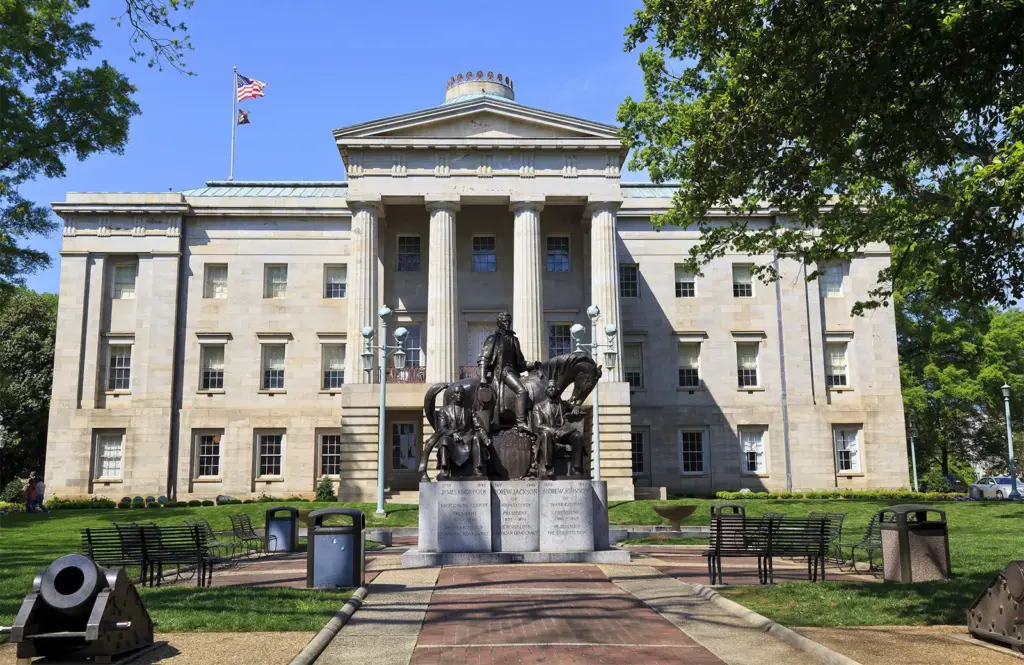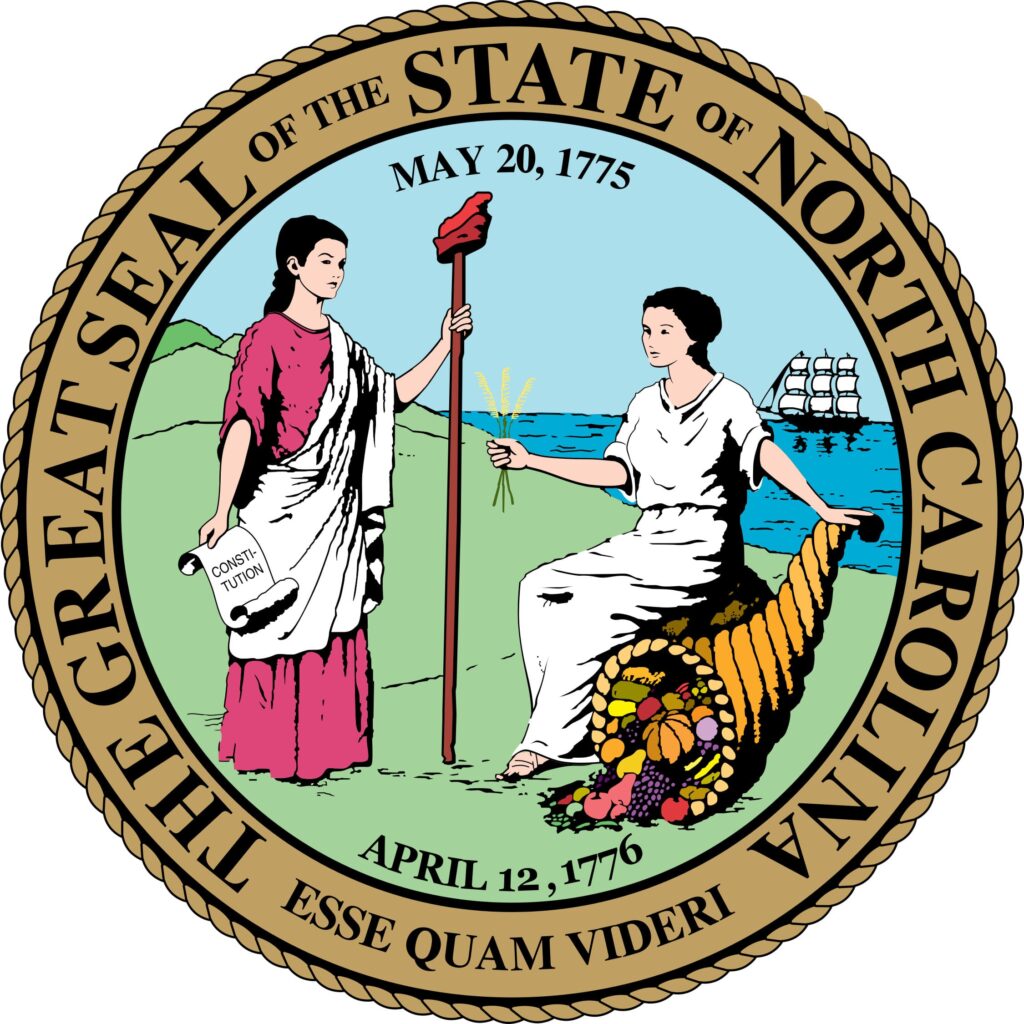
Government Structure
North Carolina’s government is organized into three main parts: the Governor and other leaders who run state agencies (the executive branch), the General Assembly that makes laws (the legislative branch), and the courts that interpret those laws (the judicial branch). In addition, the state has a group of elected officials called the “Council of State” who oversee areas like schools, money, and farming. Local government is also important – each of the 100 counties, along with towns and cities, has its own leaders who handle services such as schools, roads, and public safety. This system makes sure that decisions are shared and balanced, from the state level down to local communities.
Three Branches of State Government
Like the U.S. federal system, NC’s government operates under three co-equal branches:
Executive Branch
- Led by the Governor, elected every four years. The Governor enforces laws, oversees state agencies, proposes budgets, and has veto power (which can be overridden by the legislature).
- The Council of State includes 10 independently elected officials (such as the Attorney General, Secretary of State, Treasurer, and Commissioner of Agriculture). This is unique—most states do not elect so many executive officers separately.
- The Lieutenant Governor is elected independently and presides over the NC Senate.
- Various departments and agencies (Health & Human Services, Transportation, Environmental Quality, etc.) fall under this branch.
Legislative Branch (General Assembly)
- Bicameral legislature made up of the House of Representatives (120 members) and Senate (50 members).
- Members serve two-year terms with no term limits.
- Responsibilities include making state laws, approving the budget, levying taxes, and checking executive power (like veto overrides).
- The legislature meets in Raleigh, NC’s capital, and typically holds a “long session” in odd-numbered years and a shorter one in even-numbered years.
Judicial Branch
- Ensures laws are interpreted fairly and in line with the state constitution.
- Supreme Court – the highest court in NC, with seven justices, including a Chief Justice, elected statewide for eight-year terms.
- Court of Appeals – 15 judges, also elected, who review decisions from lower courts.
- Superior Courts – handle major civil cases, felony criminal trials, and appeals from District Courts.
- District Courts – manage family law, juvenile cases, misdemeanors, and smaller civil disputes.
- Judges in NC are elected in partisan elections, though the General Assembly sometimes adjusts how judicial elections are structured.
Local Government
- Counties: NC has 100 counties, each with elected commissioners who manage local services like law enforcement (sheriffs), schools, and public health.
- Municipalities: Cities, towns, and villages have mayors and councils that oversee zoning, utilities, and local ordinances.
- Local governments work under “home rule” powers, meaning they can only exercise powers granted by the state legislature.
Elections & Representation
- North Carolina uses single-member districts for both state legislative and congressional elections.
- Voter ID laws exist but are subject to ongoing legal and political debates.
- Redistricting, often contentious in NC, can significantly influence political representation.
Checks & Balances in Action
- Governor’s veto power provides a check on the legislature, but the General Assembly can override with a three-fifths vote.
- Judicial review ensures laws comply with the NC Constitution.
- Multiple independently elected executives (Council of State) prevent too much consolidation of power under the Governor.


